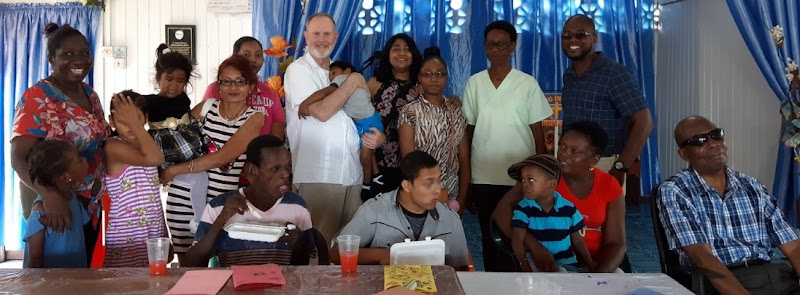Horticultural Therapy in Guyana
Plants do not only provide us with sustenance and the air we breathe. They can also bring joy and confidence to those with disabilities. Maureen Regan used horticulture therapy when she served as a Farmer-to-Farmer Volunteer in Guyana in July 2019. Maureen completed a Horticulture Therapy Certification Program at the School of Professional Horticulture at the New York Botanical Garden.
In Guyana, there is a dearth of resources and technology to help people with disabilities. There is an urgent need for equipment, centers, outreach, and education. Caring for plants can help fill this gap by being beneficial to the processes of rehabilitation and wellness. Horticulture therapy can be practiced with few resources because special equipment is not needed, and it can reinforce attributes such as empathy, trust, sharing, team-building, and the motivation for growth. Those with disabilities can further gain physical, cognitive, and social skills.
During her time in Guyana, Regan visited eight organizations to teach parents and caregivers how to use horticulture therapy. Regan visited sites like the Cheshire Home for the Severely Disabled, where she led residents in wheelchairs to choose plants from their garden, pass them around for the sensory discussions, and then use them to create artwork to address cognitive, physical, and social needs. She recommended having a small tabletop garden for those in wheelchairs to increase their sensory stimuli.
Regan also traveled to the Community Based Rehabilitation Center in Region 6 to help children with mental disabilities. The volunteer and participants created a garden built using recycled automobile tires. The garden will provide food like tomatoes, peppers, and cauliflower and will become a learning resource on nutrition and the non-stove cooking preparation of food.
To share the therapeutic benefits of plants and their applications in communities of those with disabilities, Regan spoke with the television show, “Guyana Today” and the radio program, “Region 4, Georgetown Public Access Radio Program.
After each site visit, Regan recommended changes, such as implementing tabletop gardens, using flowers and edible plants for crafts, getting more volunteers to help, gaining more access to plants and gardens, and recruiting retired clinical staff to be trained by F2F volunteers. She hopes that more healing gardens will be created to help those with disabilities feel supported.





.png)

Comments
Post a Comment